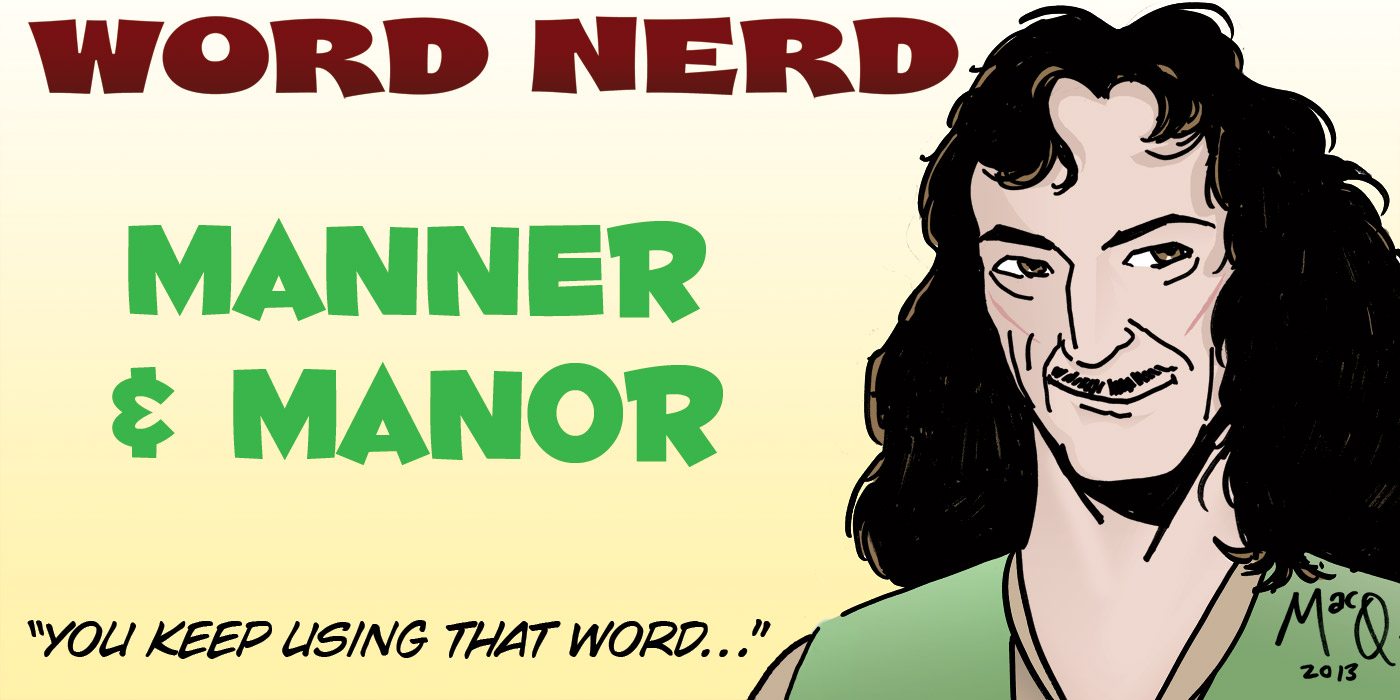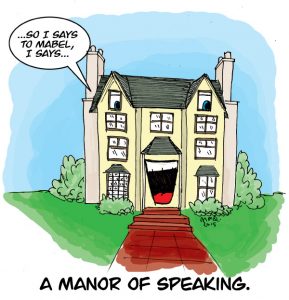
This week’s Word Nerd was a suggestion, but I can’t remember from whom. I think it was a fellow GeekDad contributor, but the post is long since vanished. ‘Tis a pity. Well, thanks to whomever it was.
Manner: ?characteristic or customary way of doing, making, saying, etc.; a person’s outward bearing; way of speaking to and treating others; air of distinction; characteristic style in art, literature, or the like.
Manor: the main house or mansion on an estate, plantation, etc.
 Manner first appears around 1150 from the Middle English manere, migrating from Anglo-French by way of the Old French maniere, which comes from the Vulgar Latin manuaria, which is the noun use of the feminine version of manuarius, which means handy or convenient ( it derives from the Latin, of or pertaining to the hand).
Manner first appears around 1150 from the Middle English manere, migrating from Anglo-French by way of the Old French maniere, which comes from the Vulgar Latin manuaria, which is the noun use of the feminine version of manuarius, which means handy or convenient ( it derives from the Latin, of or pertaining to the hand).
Manor comes in about 100 years later, around 1275, as the Middle English maner, which comes from the Old French manoir, the noun use of manoir which means “to remain, dwell.”
Shakespeare coined the saying “to the manner born” in Hamlet, but it often gets misquoted as “to the manor born”; the two express slightly different ideas:
“To the manner born” means “destined by birth to be subject to the custom.”
“To the manor born” means “born to great wealth and privilege.”
If you refer to a disorganized manor, you are talking about a house where you can never find anything.
If you refer to “Stately Wayne Manner” you’re talking about the way Bruce Wayne comports himself.
Bonus word: If you happen to have a Boston accent, both manner and manor might sound like you’re saying “manna,” which is the miraculous food provided to the Israelites when they wandered in the wilderness in Exodus 16. It’s derived from a Hebrew word, either man hu, an expression meaning “what is that?” or manan, “to allot.”



